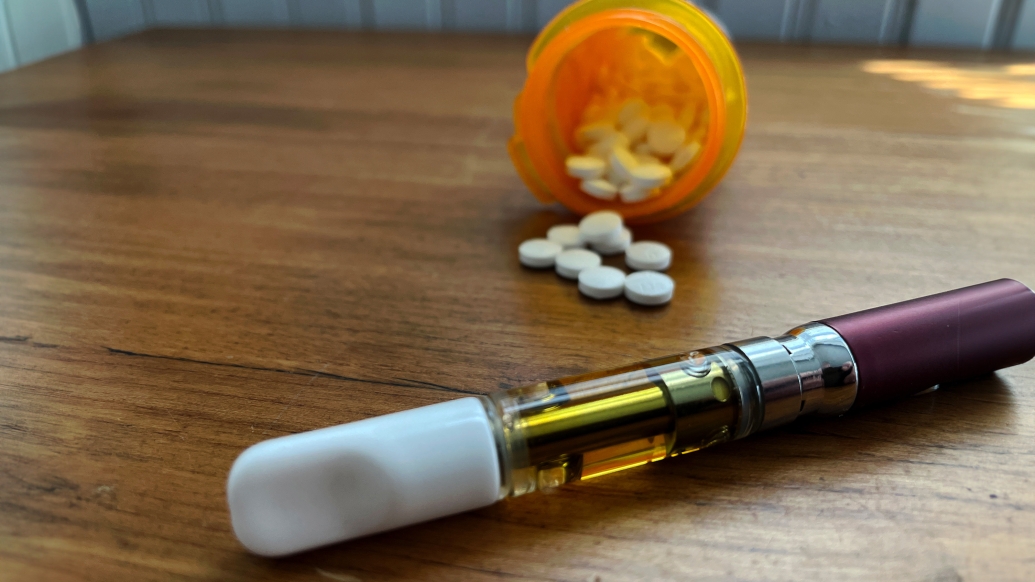Over 1,000 clinicians took part in the survey
5:00 AM
Author |

The amount of stigma associated with both opioids and cannabis for pain relief has changed dramatically over the past decade, both influenced by the explosion of the opioid epidemic and relaxing laws around cannabis for medical and recreational use.
Recent Michigan Medicine research finds that patients with chronic pain who use either substance may find it harder to find primary care physician than those who don’t.
Mark Bicket, M.D., Ph.D., of the U-M Department of Anesthesiology, and his colleagues, surveyed more than 1,000 United States primary care physicians about whether they were accepting new patients with chronic pain.
Of the 852 who answered yes, 20% said they wouldn't accept patients who take prescription opioids and 12% said they wouldn't take patients using cannabis for pain.
In contrast, just 0.1% said they wouldn't accept patients taking non-opioid pain killers, such as NSAIDs.
“There’s a group of legacy patients with chronic pain who have been on long-term opioids for some time, and they may have to find a doctor, maybe because they’ve moved or their doctor has retired,” said Bicket.
“For those patients in particular, finding someone else to help with their care is challenging.”
Making matters worse, this same group is at a higher risk of having a problem if they don’t have access to their medication, he adds.
Additionally, the fact that 1 in 10 said they wouldn't accept a patient using medical cannabis was surprising, says Bicket.
“We think some of this may be due to the differences in how cannabis is approached at the Federal versus state levels,” he said.
And the continued scheduling of cannabis at the Federal level as a drug with no medical use and high potential for abuse has made doing research around cannabis for pain more difficult.
While the study didn't assess reasons for physician reluctance, it adds to a growing body of evidence that patients using cannabis or opioids have less access to care.
“I empathize a lot with the patients, as well as the prescribers out there, trying to treat people in pain because we’re trying to do the right thing, and yet, we’re flying in the dark when it comes to having access to high quality evidence to guide next steps for cannabis and opioids.”
Additional authors include Elizabeth M. Stone, Kayla Tormohlen, Reekarl Pierre and Emma E. McGinty.
Paper cited: “Access to care for patients with chronic pain receiving prescription opioids, cannabis, or other treatments,” Health Affairs Scholar. DOI: 10.1093/haschl/qxae086
Sign up for Health Lab newsletters today. Get medical tips from top experts and learn about new scientific discoveries every week by subscribing to Health Lab’s two newsletters, Health & Wellness and Research & Innovation.
Sign up for the Health Lab Podcast: Add us on Spotify, Apple Podcasts or wherever you get you listen to your favorite shows.

Explore a variety of health care news & stories by visiting the Health Lab home page for more articles.

Department of Communication at Michigan Medicine

Associate Professor
Want top health & research news weekly? Sign up for Health Lab’s newsletters today!





